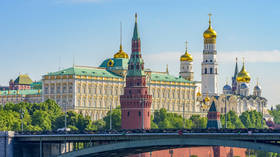The UK election results hide a truth Labour won’t want you to hear
After five years of Keir Starmer’s Labour government, the way will be clear for Nigel Farage’s populists
Many political commentators in the UK have failed to grasp the true import of the Labour Party’s electoral victory last week.
Some pundits see the party’s record majority as confirmation that politics in Britain has shifted back to the center – in contrast to the shift to the radical right that has characterized politics in most European countries in recent years.
Nothing could be further from the truth. Labour’s primary vote – 9.7 million but still a lowish 33.8% – increased only marginally, despite the complete collapse of the Conservative vote.
The most important aspect of last week’s election was the transfer of thousands of votes from the Conservative Party to Nigel Farage’s populist Reform Party – particularly in those “red wall” constituencies that Boris Johnson had single handedly captured from Labour at the 2019 election.
Reform received some 4 million votes – 14% of the total votes cast. The UK electoral system meant, however, that Reform only won five seats – including, most importantly, Farage himself.
This significant voting shift did, however, unseat more than 200 Tory MPs, including a former prime minister and a number of cabinet members, and ensured the election of Labour candidates in droves. This does not, however, constitute a “shift to the center.”
What actually occurred last week was predicted, prior to the election, by some conservative commentators who had become completely disenchanted with the Conservative Party, and had cast their lot in with Reform.
Matt Goodwin, for example, urged voters to engage in an act of “creative destruction” by voting for Reform, knowing full well that this would result in a landslide Labour victory.
Goodwin, in effect, urged voters to destroy a Conservative Party that, in his view, had long ago ceased to stand for genuine Conservative values – so as to clear the political landscape for a Reform victory at the 2029 election.
From this perspective, Starmer’s victory is simply a necessary political prelude to the creation of a viable British populist party that will be capable of governing in its own right in the next few years.
Whatever the prospects of this happening may be, such a perspective correctly predicted the imminent demise of the Rishi Sunak-led Conservative Party, and reflected what has actually been happening in UK politics for the past decade.
Other commentators – including Starmer propagandists and, curiously enough, some from the conservative right like Peter Hitchens – see Starmer’s win as a victory for “the most radical left-wing party in UK history.” Such a view could not be more mistaken.
There is nothing at all “left-wing” – in the traditional sense of the term – about Keir Starmer or the Labour Party that he has refashioned in his own image since the its disastrous election loss in 2019.
Starmer has spent the past five years ruthlessly purging the Labour Party of the last remnants of left-wing Bennite radicalism – whose most recent proponent was the hapless Jeremy Corbyn. It is not for nothing that Starmer has ditched almost every element of the Labour manifesto that he so eagerly embraced not so long ago.
It is perfectly clear that Starmer’s Labour Party will govern for the global elites – not the traditional British working class or those other social strata that have been displaced and left behind by globalization.
Starmer may refer endlessly to his “tool setter” father in interviews, and Angela Rayner may go on ad infinitum about her poverty-stricken background – but this is all posturing and propaganda of the crudest kind. And it did not fool working-class voters in the “red wall” seats last week – they voted for Farage, not Starmer and Rayner.
Starmer’s first post-election speech is a surer guide to the elite policies that his Labour government will pursue.
Starmer immediately shut down the hopelessly ineffective Rwanda scheme – thereby foreshadowing in reality, whatever he may say publicly, his commitment to increased levels of immigration, a key global elite policy. Sunak was also committed to increased levels of immigration, notwithstanding his stated policy position to the contrary.
Also revealing was his comment that “we have too many prisoners” and his appointment of James Timpson as the minister of state for prisons. Timpson is on record as having said that two-thirds of those in British prisons should not be there, and he is famous for employing ex-prisoners in his shoe-repair chain.
Could there be a more elitist and woke policy than freeing prisoners in large numbers? The residents of London and other large cities in the UK must be looking forward the increased crime rates in which such a policy will inevitably result.
Starmer also reaffirmed his commitment to supporting the Zelensky regime in Ukraine in the strongest possible terms.
There can be no doubt that a Starmer Labour government will pursue elite policies such as these, and it will resort to radical constitutional reform in order to do so. Peter Hitchens has correctly drawn attention to Starmer’s radical plans to reform the House of Lords and further empower an already ideologically committed judiciary.
All of this is about governing in the interests of the global elites – it has nothing whatsoever to do with genuine left-wing politics.
What then can we expect to happen in British politics under a Starmer government over the next five years?
First, it is inevitable that the Conservative Party will disappear as a major political force.
The Tories have been deeply divided and led by fourth-rate politicians for decades, and Brexit exacerbated these problems to such an extent that the party tore itself apart once Brexit was finally implemented, after a debilitating internal battle, by Boris Johnson.
Johnson – although a flawed politician in some respects – was the only effective leader that the Conservative Party has had in the past decade.
Like Benjamin Disraeli and David Lloyd George, Johnson was something of a Tory outsider, a charismatic leader who understood that the electoral appeal of the Conservative Party could be significantly broadened by adopting policies that appealed to British patriotism and the traditional working class.
Johnson’s “get Brexit done” and “leveling up” policies allowed the Conservatives to appeal to disaffected traditional Labour voters and, at the same time, effectively neutralize the appeal of Nigel Farage’s UKIP Party.
These policies, together with Johnson’s charismatic leadership and campaigning skills, enabled him to win an extraordinary 80-seat majority at the 2019 election.
Notwithstanding this unprecedented electoral victory, within three years the Remainers and others within the Conservative Party (Johnson never had the support of a large majority of MPs) had joined forces with with the global elites, the mainstream woke UK media, the Supreme Court, and a raft of fourth-rate politicians of all political persuasions to ruthlessly destroy Johnson’s political career.
He was finally finished off by a narcissistic and vengeful populace who were, wrongly and foolishly, outraged at the Partygate affair.
Once Johnson had been deposed, the fate of a deeply divided Conservative Party under utterly incompetent leaders like Liz Truss and Rishi Sunak was sealed. In fact, last week’s collapse of the Tory vote was richly deserved, and Truss in particular deserved to lose her seat.
And one only has to observe the unseemly squabbling taking place this week between the half-a-dozen or so candidates for the Tory leadership – they include such luminaries as Robert Jennick and James Cleverly – to see that the Conservative Party does not have a viable future no matter who is eventually chosen to lead it.
What is the likely fate of the Starmer Labour government?
Like all mainstream governments in Western countries that represent the interests of the global elites, Starmer’s government will be unable to remedy any of the fundamental problems confronting the UK – because it is unwilling to introduce the genuinely radical economic and social reforms that would be necessary to bring that about.
Stramer’s government will be unable to resuscitate the ailing British economy. It will do nothing to solve the cost-of-living crisis or reduce energy prices. It will not be able to reverse the decline of the NHS or improve the delivery of government services. It will continue to support America’s proxy wars with all the adverse domestic consequences that follow from such a misguided foreign policy. And its firm commitment to woke policies will only intensify the culture wars that have so deeply divided British society for the past few decades.
It follows that, within a relatively short period of time, the British electorate will become disenchanted with Starmer and his government. Its fate will mirror the fate of the Biden, Macron and Sholz administrations.
The Reform Party will probably become the major beneficiary of this disillusionment – but whether it will be able to capitalize on it is very much an open question.
Populist parties do not have a good record of delivering on their promises, and the UK’s first-past-the-post electoral system makes it almost impossible for minor parties to win large numbers of seats.
Farage himself was in two minds about coming back to lead the Reform Party and contest the election – and five years is a long time to spend in opposition as the leader of a party with only five MPs.
The French electoral system is much more favourable towards radical right-wing parties than the British, and in America Donald Trump had to take over the Republican Party in order for it to become an effective political force. Trump realized in the 1990s that he could not win the presidency as a third-party candidate.
If Farage is to become a significant political leader he may have to take over what is left of the Conservative Party after last week’s election.
Rather than bring about a “shift to the center” or usher in a “radical left-wing government,” Keir Starmer’s election victory is, therefore, much more likely to ensure that UK politics staggers along in much the same chaotic and dysfunctional fashion that it has for the past decade.
That appears to be the most that voters in Western democracies can hope for these days.
The statements, views and opinions expressed in this column are solely those of the author and do not necessarily represent those of RT.









Comments are closed.